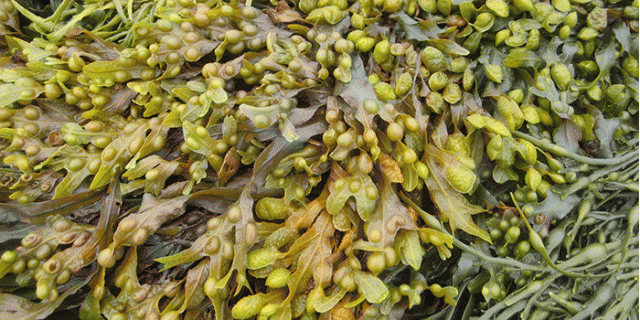Bladderwrack seaweed from Danish waters contains antioxidants, which can effectively prevent fatty acids from becoming rancid in a number of products.
This is the finding of a PhD project from the National Food Institute, Technical University of Denmark.
However, more research on the antioxidants’ structure and mode of action is needed before the food, cosmetics and pharmaceutical industries can start using them.
The bladderwrack seaweed which washes up on the Danish shoreline can help make foods taste better and prolong the shelf life of both foods and face creams.
Antioxidants in bladderwrack seaweed has proven particularly effective in preventing fatty acids in foods and cosmetics from becoming rancid, which occurs in a process through which the air’s oxygen oxidizes the unsaturated fatty acids.
This process can give foods an unpleasant taste.
This is one of the findings of Ditte Baun Hermund’s PhD project from the National Food Institute.
Her work has among other things shown that the antioxidants can prevent fish oils added to fortified foods such as muesli bars from becoming rancid.
The study has opened the door to more environmentally-friendly extraction methods as warm water under high pressure has successfully been used to extract the antioxidants from the seaweed.
It also shows that acetone and ethanol are both very effective when used on bladderwrack seaweed.
These substances have previously been used for extraction.
More research is needed
While the work has contributed basic knowledge, more research on the antioxidants’ structure and mode of action is needed before the industry would be able to start using them.
It would for example be necessary to study whether there are any potential adverse effects before permission could be obtain for use in foods.
The extraction methods would also need to be developed further so that they can be used on an industrial scale and not just in a laboratory.
A foreign company has already shown interest in extracting antioxidants from bladderwrack seaweed and has held preliminary talks with the National Food Institute around the prospect of a future cooperation.
Story by Miriam Meister of Technical University of Denmark










